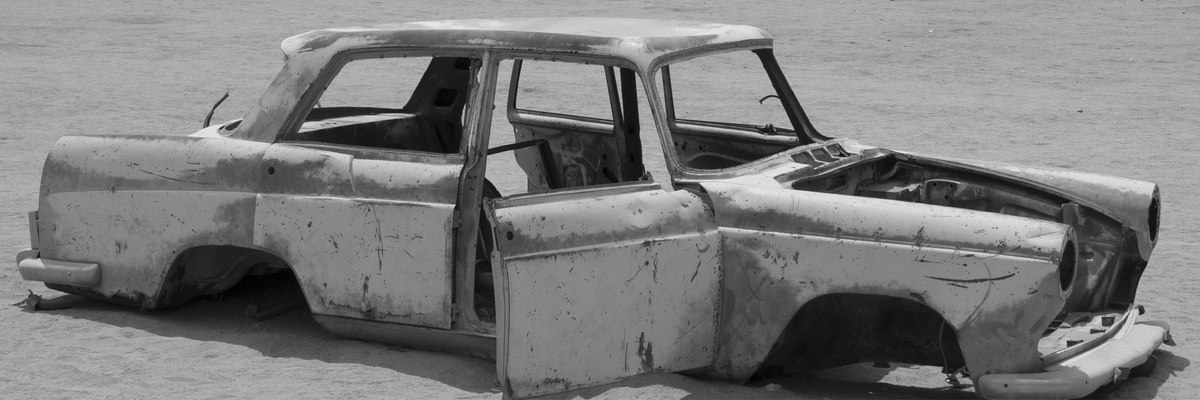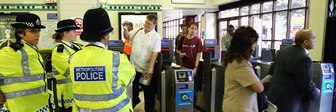Boris Johnson told us this week that we’d reached the end of the beginning, the beginning of the end or some other such echo of his hero Churchill. Things, anyway, are gradually going to start getting back to normal and Mr Johnson is very keen they should. Just so long as we don’t all rush off to the beach at the same time. It all depends, though, on us - and how much we want simply to resume the lives we were leading back in early March. Is it even conceivable that our love affair with the car is due for a morning-after reappraisal?
There is no doubting the central role the car has played in the life of Britain and every other developed country in the decades of soaring affluence we have enjoyed since I was a kid. Where once only rich families had a car, now almost everyone does – sometimes more than one. For as long as most of us can remember the car has been both the symbol and the facilitator of freedom. It has turned us (along with cheap flights) into creatures of hypermobility, enabling us to get up and go pretty much anywhere we fancy any time we fancy it.
But the car has been more than this. To many people cars are things to cherish in themselves. They are not just objects of utility but things of beauty. Even in the early days their association with sex was spotted by canny advertisers who would drape the new models with, well, models. And it is still the case that for many men (and I doubt that on this occasion I’ll have feminists on my back for talking exclusively about men) the only topics worthy of conversation are sport, women and cars. Jeremy Clarkson is not a rich man for nothing.
And of course cars are also status symbols, mobile advertisements for their owners’ wealth, style and success. An estate agent once told me that in some parts of London houses with big, sweeping front drives sell at a premium because certain sorts of people need to show off their gleaming motors lined up nose-to-tail in front of their mansions. Why else would the biggest growth in recent car sales (pre-Covid) be in SUVs, those grotesque, gas-guzzling, 4x4 ‘tanks’ that clog the narrow streets of the older, affluent parts of inner cities and cannot possibly be of any practical value except to enable their owners to look down on lesser folk in traffic jams?
I say that ‘we’ have a love affair with cars but I have to confess that I have never been smitten with any of this myself. Nowadays I go for months without driving. My car is a 27 year-old Rover. And as for a love affair, I suppose there is one in a manner of speaking, but it’s more that between an elderly couple who’ve not much to say to each other any more but are nonetheless gently looking forward to their golden wedding. If there was ever any passion here, it has certainly gone.
Covid has been as restraining on our love affair with the car as it has been on the more conventional sort. We’ve had to keep our distance. In both cases it has discouraged even a quickie. But it has also provided an opportunity for taking stock, for asking whether the long love affair was perhaps a bit blind and that maybe we’ve become over-dependent. By making us stay at home it has presented us with the question of whether we ever needed to racket around so much and whether we’d prefer not to do so again when the choice is once more ours.
Covid has certainly persuaded many of those who have been able to do so that working from home has real benefits, not least not having to get into a car twice a day and crawl through congested traffic to work and back. And because necessity is the mother of invention we’ve discovered too that we can see our friends and distant relatives without having to drive miles to be physically in their company: Zoom lets us share their company with much less hassle and much more quickly.
And then there have been the benefits of other people also having to refrain from driving. Our neighbourhoods have been quieter and more relaxed. We’ve been able to hear the birds sing once more. Air pollution, which had been choking our kids and storing up all sorts of health problems for later life, evaporated almost overnight. And the little matter of climate change is ameliorated when we don’t all charge about belching out greenhouse gases into the atmosphere.
So as Covid starts to recede (at least for the time being) and our ‘hibernation’, as the Prime Minister called it, comes to an end, it might be the time for a little frank talk with the car along the lines of: “Well, it’s been lovely knowing you. We’ve had some great times together. We’ll always have the memories. But I think now I want to do my own thing for awhile. So take care.”
Is this what’s going to happen? If our European neighbours are any guide to what our own behaviour is likely to be, it seems that foreseeing such a split-up with the car may be a touch premature. In Germany, France and Italy, which are all a week or two ahead of us in the course of the pandemic, everyone has leapt at the chance to get stuck back in traffic jams. According to data from TomTom, the satellite navigation device company, congestion in all these countries has already risen significantly from the low levels of the middle of the lockdown. Lauri Myllyvirta, an analyst at the Centre for Research on Energy and Clean Air, told the Financial Times this week: ‘We risk getting pre-crisis levels of congestion and pollution already, before full economic re-opening.’
It’s not hard to see why this may be happening and why it may also be what will happen here. If, after lockdown is lifted, people have to travel again, what alternatives to the car do they have? There are some, of course, but they may not fully fit the bill.
Cycling is wonderful and has been taken up massively by the young, not just during the lockdown but before it too. That the roads have been clear of cars has made a bike more attractive than ever. But cycling is not a panacea (or, as the current, dreary idiom would have it, it’s ‘not a silver bullet’). Although there are plenty of older cyclists about, the older people get, the more nervous they become about the danger of cycling. Some of that nervousness is to do with the speed and inconsiderateness of younger, often seemingly aggressive younger cyclists who sometimes convey the impression they own the road, or think they ought to. And once motorised traffic starts up again, that nervousness is likely to increase. In any case, even the young can cycle only so far and many of the journeys we want to make are much further afield.
Equally, public transport will take a long time to resume its function as the obvious, preferable alternative to getting in the car. So long as the virus is still hanging about we won’t be too keen to risk being squashed up against others on buses, trains and the tube. Even Mr Johnson, keen for us all to get back to work and into the shops, discourages us from using public transport to do so.
So back into the car it may well be. And there will be commercial and political pressures urging us to do so too. Car sales have virtually collapsed during the pandemic and with it so too has car production, still an important part of the British economy. The industry is piling pressure on the government to give further help. There’s talk of a scrappage scheme to encourage us to trade in our old cars for new ones (mine’s staying where it is, draped in cobwebs in front of my house). And although it doesn’t say so loudly, the government itself rather likes us driving so much because of the fuel duty it puts in its pocket every time we fill up. The government needs every penny it can find at the moment.
All this suggests that ending the affair won’t be an easy matter, notwithstanding all the costs in terms of congestion, air pollution, destroying the planet and the like. If, though, we reflect, after this enforced cooling-down period, that the car, far from being a cheap date is, in fact, a very expensive one and that we don’t want to go on picking up the tab, there’s really only one conclusion we can come to: we need to curb our addiction to hypermobility.
To the world in which I grew up after the War, the rushing around we do today would have been unimaginable. But it would also have seemed mad. Most people, most of the time, stayed pretty close to where they lived and if they had to move about in their own neighbourhood, they walked or got on their bikes. You didn’t take your child to school in a car. Of course it was good to get away sometimes but doing so was the exception not the norm. And because it was the exception it was exceptionally good. It was something to look forward to and to value. But staying put was fine too. And all the studies show we were happier then. Is that something we should casually forget?
So what’s it to be now? Should we put the car keys back in the drawer? Or are we itching to get back in the driving seat? Which do you want? And what do you think everyone else will do? Has the love affair had its day or can we just not bear to part?
Let us know what you think.







